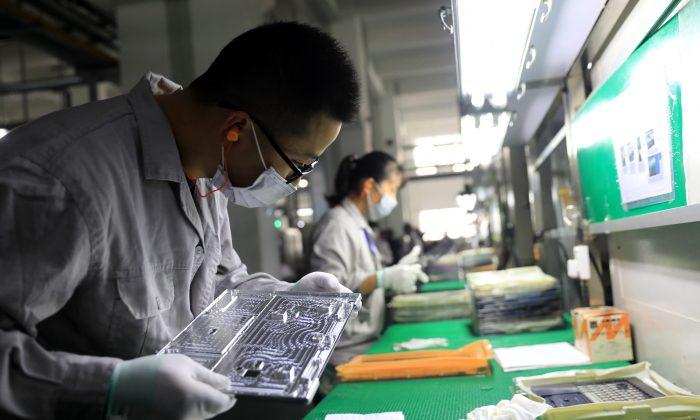SHANGHAI—Chinese chipmaker Fujian Jinhua Integrated Circuit Co Ltd said on Jan. 10 it has pleaded not guilty to U.S. charges alleging that it stole trade secrets, in a case that has fanned tensions in the intensifying technology race between the two countries.
The U.S. Justice Department in November announced an indictment against state-owned Fujian Jinhua and Taiwan-based United Microelectronics Corp (UMC), alleging they stole intellectual property from U.S.-based Micron Technology Inc .
In October, U.S. authorities added the Chinese firm to a list of entities that cannot buy components, software or technology goods from U.S. firm, citing a “significant risk” that the Chinese firm’s new memory chip capacity will threaten the viability of American suppliers of such chips for military systems.
Fujian Jinhua said in a statement posted on its official microblog account that it would work towards getting itself removed from the U.S. export control entity list and had hired lobbyists and legal advisors to help with its case.
The case has thrown a shadow over Fujian Jinhua’s semiconductor ambitions and Chinese regime’s plan to cut a heavy reliance on U.S. imports. The firm had billed itself as a national leader in the tech industry.
The Chinese regime is putting enormous pressure on Chinese companies to increase domestic production of core technologies, with the goal of achieving self-sufficiency and dominating global supply chains by 2025.
The indictment was originally filed under seal in September by the U.S. district court of the Northern District of California.
The ban on Fujian Jinhua is similar to a prior U.S. ban against Chinese telecoms firm, ZTE, in April.
ZTE was blocked from buying from U.S. suppliers, after the Commerce Department said the Chinese firm had failed to comply with stipulations, because of violations of U.S. sanctions placed on Iran and North Korea. The ban on ZTE, which almost put the company out of business, was eventually lifted in July after the firm agreed to pay a settlement fee of $1 billion.
The ban on Fujian Jinhua has set a precedent—Chinese companies that have been accused of stealing trade secrets from the United States will likely soon face similar bans, according to an analysis by the Hong Kong Economic Times in an Oct. 30 article.
By Josh Horwitz & Adam Jourdan. The Epoch Times contributed to this report.





Friends Read Free